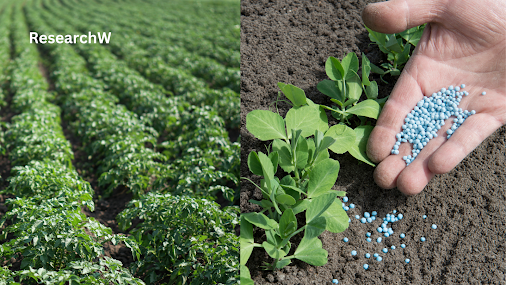Manure
Manure is organic material that is used to fertilize soil and improve its fertility. It is a valuable resource in agriculture and gardening because it provides essential nutrients to plants and improves soil structure. Manure can come from various sources, including livestock, poultry, and even composted organic materials. Here are some key points about manure:
Types of Manure: There are several types of manure, each with its own nutrient content and characteristics. Common types include:
Animal Manure: This includes manure from animals like cows, horses, pigs, chickens, and goats. Different animal manures have varying nutrient profiles.
Green Manure: Green manure is made from fresh plant material, such as legumes or cover crops, that is plowed into the soil before it decomposes fully. It adds organic matter and nutrients to the soil.
Composted Manure: Manure that has undergone a composting process is more stable and less likely to contain harmful pathogens. Composting also helps eliminate odors.
Liquid Manure: Some manures are liquefied for easier application through irrigation systems.
Nutrient Content: Manure is rich in essential nutrients for plant growth, including nitrogen (N), phosphorus (P), and potassium (K). These nutrients are often referred to as NPK. The nutrient content varies depending on the type of manure and the animal's diet.
Organic Matter: In addition to nutrients, manure contains organic matter, which improves soil structure, water retention, and aeration.
Benefits of Using Manure:Fertilization: Manure provides a slow-release source of nutrients to plants.
Soil Improvement: It enhances soil structure and microbial activity.
Waste Reduction: Properly managing animal manure can reduce environmental pollution.
Sustainability: Using manure as a fertilizer promotes the recycling of nutrients in agriculture.
Precautions:Pathogens: Fresh manure may contain harmful pathogens, so it should be properly composted or aged before application.
Odor: Manure can produce unpleasant odors, which can be a concern in densely populated areas.
Nutrient Management: Overapplication of manure can lead to nutrient imbalances and environmental issues.
Application: When using manure as a fertilizer, it's important to follow recommended application rates based on soil testing and the specific nutrient needs of the crops you're growing.
Regulations: In many regions, there are regulations and guidelines governing the use of manure to minimize environmental impacts.
Overall, manure is a valuable resource in agriculture and can be an important component of sustainable farming practices when used responsibly and in accordance with best management practices.
#Manure
#Fertilizer
#OrganicFertilizer
#Compost
#Gardening
#Fertilizer
#OrganicFertilizer
#Compost
#Gardening
Visit: https://x-i.me/SrzK



0 Comments:
Post a Comment
Subscribe to Post Comments [Atom]
<< Home